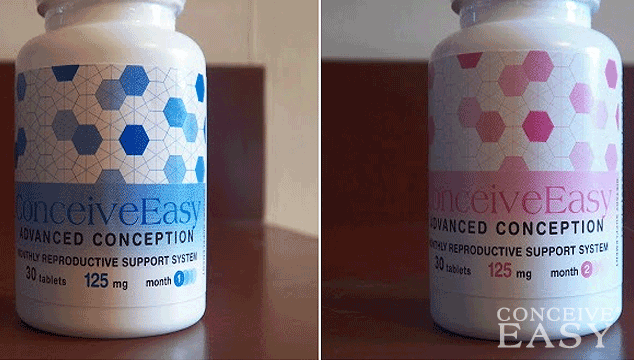![]() The information provided by our expert should not constitute a diagnosis of your condition. Always consult a medical practitioner or healthcare provider for a formal diagnosis. By making use of this content, you agree that ConceiveEasy and the expert assume no liability.
The information provided by our expert should not constitute a diagnosis of your condition. Always consult a medical practitioner or healthcare provider for a formal diagnosis. By making use of this content, you agree that ConceiveEasy and the expert assume no liability.
For women who are having issues ovulating, it can become difficult for them to become pregnant. There is only a small window of time each month when a woman can become pregnant and if you are looking to time your intercourse during this period of time it is important to have an ovulation cycle that is regulated. Claim Your 20 Free Pregnancy Tests – Click Here
Luckily, there are many vitamins and nutrients that you can take that can help regulate your ovulation cycle and make it easier for you to become pregnant. Below are some of the most popular items you can take to help your ovulation cycle and give you a better chance of becoming pregnant in the near future.

Vitamin D has been shown to help women who are suffering with issues related to ovulation. Researchers showed that women with low levels of vitamin D have more issues with her ovulation cycle than women who have healthy levels.
Some of the vitamin D that we consume is given to our bodies through sunlight. However, during the winter this may be more difficult because there is less sunlight and we stay indoors more often. During this time, you may want to look at consuming a vitamin D supplement of around 1000 mg per day to make up for the amounts of vitamin D that you’re losing from the sunlight.

Another vitamin that is important to the ovulation cycle is vitamin B6. This item and is water-soluble and helps to regulate the hormones in a woman’s body. This vitamin is crucial for the luteal phase and for regulating it so that a woman can ovulate properly.
It is suggested that women consume 100 mg of vitamin B6 daily in order to lower the amount of prolactin in the system. Prolactin can cause disruption with ovulation cycle and create a monthly cycle that is irregular.

Folic acid is another nutrient that can be beneficial when trying to regulate the ovulation cycle. There are a number of ovulation disorders that can occur and women who regularly consume folic acid have been shown to have a decreased risk of developing them.
Folic acid is also important for the development of the baby and can be crucial during the first few weeks of life. It has been shown to reduce the risk of issues such as spina bifida and can produce normal red blood cells. For women, it can actually prevent strokes and cancers at times. Women who are in the childbearing age range are suggested to consume 100 mcg daily.

Vitamin C has been shown to be important when the body is forming collagen for bones as well as cartilage and vessels of the body. It has also been shown to help stabilize hormone levels and help with iron absorption.
Also, by taking vitamin C, the cervical mucus is improved and infections are fought off, all which can interfere with ovulation. It is recommended that we consume 65 mg of vitamin C each day.

It is recommended that we consume 54 mg of iron daily. When taken with vitamin C, iron can help improve fertility. Iron deficiencies have been known to cause anemia, which worked to disrupt the ovulation cycle. If you plan to take iron supplements, you should know that there are often times when it causes constipation. It is important that you take iron alongside fiber and water to help eliminate these issues.

If you are having issues with conceiving, there are a number of vitamins that you can take to help the process. It is a good idea to discuss these options with your doctor so that you know which ones you should be focusing on.
Typically, you can gain many of these vitamins and nutrients by taking a simple prenatal vitamin that is either prescribed by your doctor or found over-the-counter. It is important that you take these prenatal vitamins daily even before you become pregnant.
By taking a prenatal vitamin while you are trying to conceive, you will be increasing your chances of becoming pregnant and will be building up the valuable nutrients and vitamins that your baby needs during the first few weeks after conception. This can be extremely helpful for the health of your baby and of your pregnancy.










Comments